It was one of those air-punching moments that brought with it a sense of justification for the countless shelves and the innumerable hours ‘wasted’ with my nose in a book. Reading fiction is good for you. Officially and scientifically. According to a published study reading fiction increases empathy by opening a door on human experience. It transports the reader to situations beyond their own sphere, allows them to predict the characters’ responses and attunes them to the emotional reactions of their fellow man. Basically it says that reading fiction teaches you to read life and people.
Not that the report was needed by those of us who enjoy such works… we’ve known that all along; but there is a peculiar literary coterie who have always looked down bespectacled noses at the readers of fiction and a critical snobbery that renders the escapism of a good story an intellectually guilty pleasure.
Both those same critics and the aforementioned report do draw a distinction between popular and literary fiction. The latter is intellectually acceptable. We can sit at a pavement café, our limbs artistically arranged, reading Tolstoy, Dickens or Victor Hugo (but only in the original French, please) and draw smiles of approbation; but God forefend you sit there giggling at a Terry Pratchett or lost in something that smacks horribly of being genre fiction. There is, after all, no hope for the readers of such stuff…
Interesting point… what the hell is ‘literary fiction’ anyway?
We all know it refers to the classics; those beautifully written books that have withstood the passage of time and fashion. We possibly assume that for modern works to qualify they have to be prose poems or dark and deep explorations of the human psyche and whose covers frequently display ‘Booker Prize Nominee’.
Not according to the dictionary, which, in fact, holds no definition at all for this composite term. Wikipedia begins its definition by saying this is “a term principally used for certain fictional works that hold literary merit…” which to me says very little and manages to denigrate the literary merit of every book that fails to meet with critical approval somehow.
The Oxford English dictionary does however define ‘literary’ as ‘concerning the writing, study, or content of literature, especially of the kind valued for quality of form’ , ‘with literature as a profession’ and ‘associated with literary works or other formal writing; having a marked style intended to create a particular emotional effect.’
Which looks pretty much as if ‘literary fiction’ therefore should really mean ‘anything written by a writer using words’; more specifically if it is well written and seeking to elicit an emotional response from the reader. Of course, accepted idiom means that we all have a vague idea that there is more to it than that.
I suppose modern ‘literary fiction’ could best be said to refer to those works that will withstand the test of time and, in the opinion of critics and reviewers, become classics one day. The trouble is that they will then join the ranks of others guilty of producing recognised classics… people like Tolkien, Bronte and Shelley, for example… who wrote fantasy, Gothic romance, and science fiction/zombie horror respectively, if we were to classify them within modern genre fiction. Because the vast majority of our ‘classics’ were not written with the literary prize of critical or academic acclaim in view; posterity and the engagement of their readers gave them their place in out literary history. These works were created by writers in an act as old as Man… they were simply telling stories.





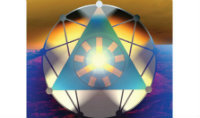

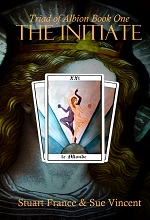
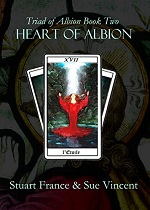

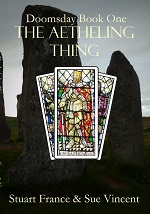
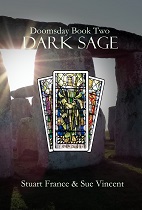
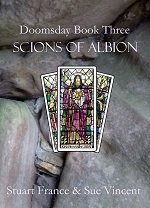



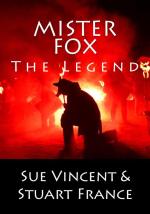
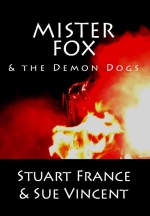
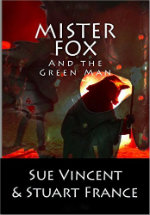
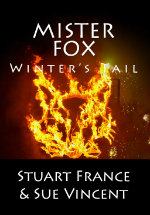
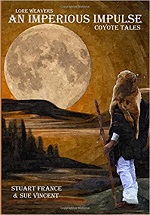

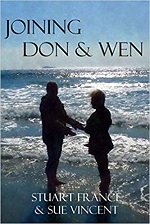

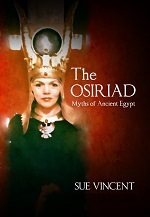
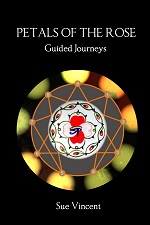

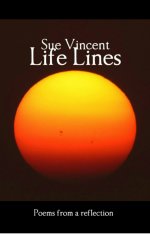
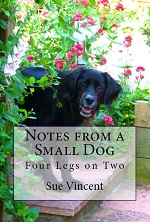

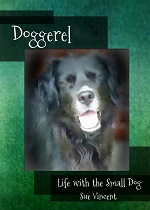

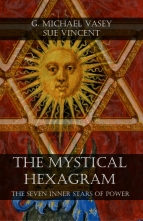

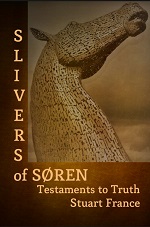
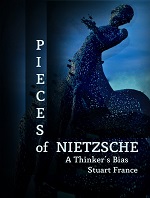
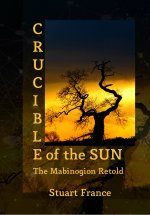
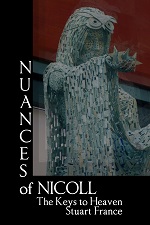

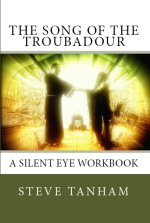
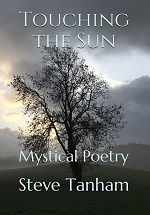

Well said, my learned friend. (My attempt at being literary)
LikeLiked by 1 person
It’s probably about as close as I would get 😉
LikeLiked by 1 person
You always nail the hidden pretension. Theres the Yorkshire lass coming through..
LikeLiked by 2 people
You can take the lass out of Yorkshre but… 😉
LikeLiked by 1 person
I simply see “literary fiction” as fiction written with care and a nod to the English language, but I’m sure it’s meant to be more “elitist” than that… x.
LikeLiked by 1 person
I’m pretty sure it is too… though, quite what I have yet to determine 😉 x
LikeLike
hahaha . Whew! I am doing something good for my health!
LikeLiked by 1 person
Nice to know that, isn’t it?
Not that it would stop us…. 😉
LikeLiked by 1 person
Reblogged this on Chris The Story Reading Ape's Blog.
LikeLiked by 2 people
They’re ridiculous. Well, they’re probably just trying to stay relevant because without this “literary” genre, itself a wholly arbitrary fiction, there would be no use for literary snobs. A good book is a good book, in my view.
In the film world, the snobs told us that Hereditary was a great movie, and it was just so awful and campy. The emperor sometimes is wearing no clothes!
LikeLiked by 2 people
Absolutely.
LikeLiked by 1 person
‘ A good book is a good book, in my view. ‘ I agree, Paula. It doesn’t need any other label.
LikeLiked by 1 person
Snobbery with gold tipped thorns? Well considered, Sue.
LikeLiked by 1 person
Thanks, Sharon. Do we really need the boxes to tell us whether we enjoyed a story?
LikeLike
You said it! I suppose there are snobs in every aspect of life, but the literary ones are particularly odious. You might be interested in an article I blogged about back in January entitled :Your Brain On Fiction by Annie Murphy Paul. Seems neuroscience says that fiction is good for your brain, and I’m quite sure it doesn’t have to be “literary fiction” to qualify! The important thing is that both the writer and reader find pleasure in the experience.
LikeLiked by 2 people
Thanks, Alexander. I’ve read a good bit of the research on what reading can do for the brain and the personality. So far, I’ve seen noting but positives.
LikeLiked by 1 person
It happened again!my comment could not be posted. It’s getting silly.
Part of the definition of literary fiction should be something that is written with correct spelling, grammar and syntax. So where does that put these books which are written without punctuation? These are generally put into literary fiction classification. To my mind they are confusing and silly.
LikeLike
Absolutely. It beggars belief that something can be considered as ‘art’ because it breaks all the rules, but break just the odd one or two and all you get is condemnation…
(I keep finding that too with comments, but find a ‘refresh’ sort sit out…not that we should need to…)
LikeLike
Reblogged this on anita dawes and jaye marie.
LikeLiked by 1 person
Thank you for sharing, Jaye x
LikeLiked by 1 person
I think, Sue, that the style of writing has changed over time as the nature of people and their lives has changed. During the Victorian era, people were very verbose with their descriptive writing. That is not tolerated in our modern world where people want more to the point and compact stories. So that leads me to wonder, can a book only have literary merit when it is old fashioned and only read by people who are particularly interested in English literature?
LikeLike
I think that depends upon the content of the story, Robbie. Shakespeare, though his language can be considered difficult by many, shed such a light on the human psyche and its foibles, that it will always be valid. Dickens is hard going, but opens a door on a vanished world… But I do not think that just because a book was great in its day it must necessarily remain so. And many do not and are forgotten.
LikeLike
Call me a philistine, but “literary fiction” means “boring” to me. I’m sure that at some point in history, these were ground-breaking novels whose stories were breathtaking and exciting. But they aren’t anymore. It doesn’t mean no one should read them and I’ve read a lot of them over the years, but at this point? Point me at anything Terry Pratchett, Jim Butcher, Ben Aaronovitch, Mike Carey, Kim Harrison, and so many others wrote and I’m happy, immersed, and awake.
The point is that most “literary fiction” wasn’t written as such. It was the hot new fiction of it’s time and times have changed. It doesn’t mean such books have no value, but they aren’t what they were or were intended to be.
Mozart and Beethoven were the hot new music of their day, too, you know? Add a couple of hundred years and now they are “classics.” But that’s not how they started out. “Classic art” didn’t start as classic. It was the latest thing.
Isn’t it really more about “old” versus “new” than “classic” versus “latest”? Aren’t we in the process of assuming that anything old has got to be better than something new — and anything that reads as if it’s old has to be better than something which reads like it’s new?
LikeLiked by 1 person
Agreed, Marilyn. Many innovative and avant-garde books are not dated and irrelevant as far as our society is concerned. And I do think there is a distinction between a ‘classic’ that has stood the test of time and the literature respected simply for its age.
Yet I still see value in reading old ones… if the story holds my attention, I can wade through verbosity.
LikeLike
I read a lot of very old books and some of them were great, others not so great. But I read them. When I was younger, I had more patience for some of the really slow-moving books. And I like old Russian novels. Go figure. But not now. There’s so much on my plate these days, if a story doesn’t grab me, I let it go. And truly, some of the books labeled as “classics” are just old. Maybe they were popular in their day, but they have little to offer us now.
LikeLike
I agree about some of the old ones being past their time..and unless they are read as artefacts they have little to offer except as an insight into the writer’s mind and epoch. I still have favourite ‘old’ authors, like Lord Lytton, whose words need to be heavily waded through, certain elements discarded as being ‘wrong, but indicative of the thinking of their era’ but still enteratining, informative or thought-provoking reads. I just don’t seem to be able to stay awake to read as long as I once did… 😉
LikeLike
I’ve got about an hour in me for reading these days, after which I start to nod off. Even listening. Maybe especially listening. Nothing like a smooth, musical voice to send me to dreamland! I don’t know why life seems to have gotten more demanding, but it has. I also feel like I have to hurry because I’m afraid I won’t live long enough to finish anything I start.
LikeLike
I’m lucky if I manage fifteen minutes before nodding off… so I tend to read old favourites before bed so that I already know what will happen next 😉
LikeLike
Me too! Otherwise, I fall asleep and miss the next few chapters.
LikeLike
yep…same here 🙂
LikeLike
Good point, well made. There’s way too much intellectual snobbery in the world of literature. I’ve always thought so. As you rightly say, many of the best works are simply great stories written well. And over the years they’ve struck a chord as a result. You hit the nail on the head here, Sue. 🙂
LikeLike
Thanks, Alli. I don’t care how old, new, prestigious or obscure a book is…as long as I can lose myself in the story. 🙂
LikeLiked by 1 person
I couldn’t agree more. 🙂
LikeLiked by 1 person
Literary fiction is often (but not always) written by people with Master of Fine Arts (MFA) degrees. (I don’t know what they’re called in the UK.) Here in Canada, we have “Can Lit,” which is often about people in bad situations that are getting worse. Gloomy stuff. But hey — Margaret Atwood is the Queen of Can Lit, but now that The Handmaid’s Tale has been made into a TV series, maybe she’s losing that Literary label. 😉 As others have said, I don’t think readers should worry about what a piece of writing is called, as long as they find it enjoyable. As for us writers, we should all produce the best works we can. Those that endure may end up being called “literary classics.” (Of course, we’ll be long gone by then.)
LikeLiked by 2 people
lol – sad but true. I’d love some validation now rather than posthumously!
LikeLiked by 2 people
I agree, Audrey, And the labels will change over time regardless. What matters if the stories we write…and read 🙂
LikeLiked by 1 person
An excellent article, Sue… Saving for reference and sharing as well. Thank you!
LikeLiked by 1 person
Thank you, Bette! 🙂
LikeLiked by 1 person
Well said! Surprisingly, many of ye olde classics were not only genre stories, they were self published as well. I suspect the traditional publishing industry created its own raison d’etre by selling readers on the idea that only approved and properly published fiction could have value.
LikeLiked by 1 person
A lot of the “classics” were actually published as serials in newspapers. A lot of Dickens’ works were published that way and I’ve always thought that some of his really LONG books were that long because he got paid by the word.
I think maybe you are right and the publishing industry invented the belief that if they didn’t publish it, it “doesn’t count.” Now that there are so few publishing houses and so many people have to fend for themselves, I think we are reinventing the industry … which is still fighting back by making “indie books” very difficult to market and forcing many bookstores — on and offline — to ONLY display THEIR books. We are going through a really huge change in the publishing world. We are “in process” right now and I’m not at all sure where we will end up … or maybe we will just continue to change. Everything else is changing, so why not?
LikeLiked by 1 person
Yes! I was thinking of Dickens when I wrote that. In his day, he would have been a ‘pulp fiction writer’! That really makes me smile.
Speaking of being paid by the word, I sometimes think George R R Martin of Game of Thrones fame is paid the same. I love his work but sometimes the detailed, meticulous, pages-long descriptions of clothing and food get to be a bit much. 😀
And yes, publishing is definitely in transition. I just hope it gets wherever it’s meant to go before I hit 90. I’d really like to see the end of this particular chapter of the story.
LikeLiked by 1 person
Food. I remember once he went on for nearly 200 pages describing a dinner. That’s also when I stopped reading his books. Aside from killing anyone I liked, he went on and on and on about every item of clothing, every dish, every food item — and I got a headache. Since I’m pretty sure they DON’T pay him by the word, what IS his excuse?
LikeLiked by 1 person
lmao!!!! I don’t know. I suspect though that dear Old George didn’t know how the myriad threads in his stories would come together and end. So he dragged them out…and out….and out… 😀
LikeLiked by 1 person
I gave up. By the second book, I was bored to death. I couldn’t face one more feast OR one more dragged out death.
LikeLiked by 1 person
I got through all but the very last? Not sure coz I lost track. Maybe one day there’ll be a slimmer, re-edited version. 🙂
LikeLiked by 1 person
I think that’s called “the TV show.”
LikeLiked by 1 person
-giggles- so right!
LikeLiked by 1 person
I think that particular myth still clings on and ‘self-published’, which was often the norm for the classics, as you say, eventually gained synonymity with ‘vanity publishing’. We are still trying to ditch that particular myth…
LikeLike
Yes, it’s an uphill battle, but each new reader makes it worthwhile. 🙂
LikeLike
I agree 🙂
LikeLike
🙂
LikeLiked by 1 person
I was 17, almost 18, and got on a train to the U.S. west coast with a paperback of “Dracula”. It was 1959. I can still see the disgusted looks on the faces of some of the other passengers. I rather enjoyed it. 😀 — Suzanne
LikeLiked by 1 person
The book is actually far better than many of the films made from it, in my opinion 😉
LikeLike
Agree. There’s nothing wrong with just telling stories. And yet Tolkien’s work, apart from being beautifully written, also has what my highschool teacher used to call, universal meaning. It’s an exploration of a perspective on life, and so is Terry Pratchett’s stuff. What is kinda pointless, in my view, is that endless parade of cookie cutter romances, thrillers, etc. They’re the reading equivalent of junk food 🙂
LikeLike